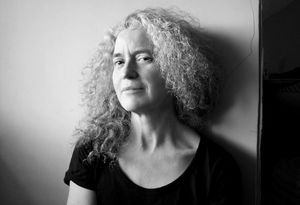Martha Baillie's Favourite Books & Biggest Influences
Giller Prize longlisted author Martha Baillie is a favourite author to many, with her past novels, including The Search for Heinrich Schlögel and The Incident Report, attracting wide acclaim.
If Clara (Coach House Books) is her newest offering, and it will delight both her existing fans and new readers, with its complex characters and absorbing mystery.
In the novel, a writer named Daisy is confined to her home with a broken leg when she unexpectedly receives a manuscript. She devours the novel, which is about a Syrian refugee, and then finds herself considering the odd request that accompanies the manuscript: that she pose as its author.
Elsewhere, curator Julia is unaware that her mentally ill sister, Clara, has written a book, but she struggles to maintain a relationship with her. Elsewhere still, Maurice finds his life thrown into chaos by a pair of binoculars in Julia's gallery.
These seemingly tangential stories collide in a way that is both surprising and inevitable, with Baillie's touches of magic realism elevating a complex story to a truly beautiful, utterly original novel.
We're thrilled to have Martha on Open Book today to talk about the books she has loved and which have shaped her, as part of our WAR: Writers as Readers series. She tells us about how tough it is for a book to make her cry, some great books that made her laugh, and the three novels that have influenced her most strongly as a writer.
The first book I remember reading on my own:
The Magician’s Nephew by C.S. Lewis.
A book that made me cry:
I can’t think of one. There were scenes in The Heart is a Lonely Hunter, by Carson McCullers, that made me rage and grieve, as did certain events in Rohinton Mistry’s A Fine Balance, but I don’t remember tears, the relief of crying. The relief I get from books comes more from feeling the possibilities of a sentence. Movies make me cry. Now, I want to remember a book that made me cry.
The first adult book I read:
It could have been Jane Eyre or Little Women? Cold Comfort Farm by Stella Gibbons stands out, not as a first adult book, but because my father recommended it to me when I was a young teenager, and I loved it.
A book that made me laugh out loud:
Three come immediately to mind, Mean Boy, by Lynn Coady, A Walk in the Woods by Bill Bryson, Atwood’s The Edible Woman.
Your CanLit News
Subscribe to Open Book’s newsletter to get local book events, literary content, writing tips, and more in your inbox
The book I have re-read many times:
Duras' The Lover, Ondaatje’s Coming Through Slaughter.
A book I feel like I should have read, but haven't:
Too many to count!! Don Quixote. Also, The Arcades Project.
The book I would give my seventeen year old self, if I could:
Lucy by Jamaica Kincaid, or her novel, The Autobiography of my Mother; anything by Kincaid.
A book I feel strongly influenced me as a writer and why:
The Voice Imitator by Thomas Bernhard – its fragments and repetitions, the delicious tension between tone and content, its dark take on the absurd. Reading it was like eating really good olives. Something about the way he marinates life, and leaves the pit inside. Also The Life and Times of Michael K by Coetzee, and Rings of Saturn by Sebald.
The best book I read in the past six months:
Transit by Rachel Cusk and Outline, by the same author. Also Box Kite by Baziju and Camilla Grudova’s The Doll’s Alphabet.
The book I plan on reading next:
I have a stack of books I keep moving around the room: Alice Zeniter’s Sombre Dimanche, Little Sister by Gowdy, Autumn by Ali Smith, Between the Acts by Virginia Woolf. Soon I have to stop jumping between them and settle on one.
A possible title for my autobiography:
Impatience.
_______________________________
Martha Baillie's recent novel, The Search for Heinrich Schlögel (Tin House), received wide acclaim and was an O Magazine editors' pick. She lives in Toronto. Her newest novel is If Clara (Coach House Books, 2017).





